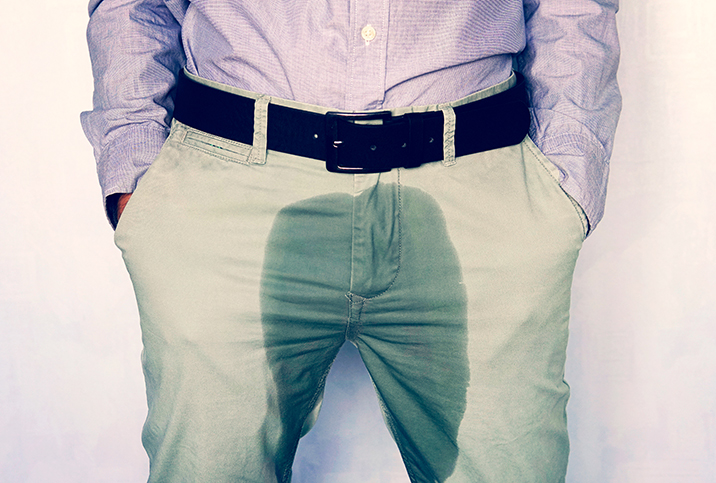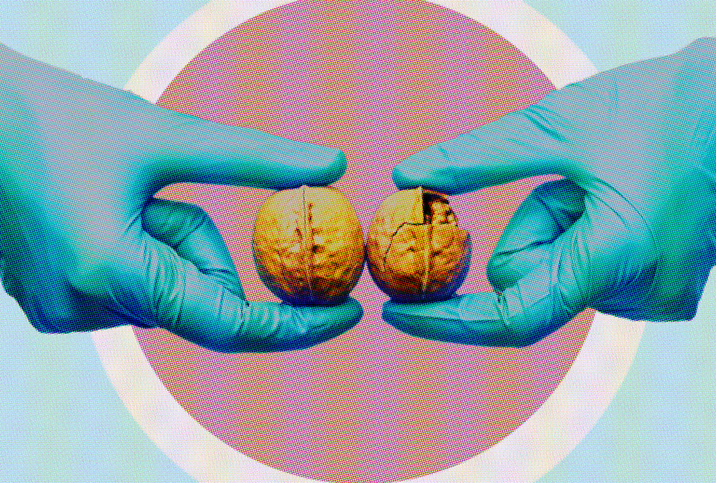How Early and Often Should Men See a Urologist?

Urologists look at problems related to the urinary and reproductive systems. It's important for men to get regular health screenings from their primary care physician and specialized care from a urologist. Unlike women, who see a gynecologist routinely beginning in their teens, men typically do not need to see a urologist until later in life. As a result, many men wonder exactly how often they should see a urologist.
Some doctors recommend that men see a urologist when they hit age 40 to discuss issues such as frequent urination or erectile dysfunction (ED). For most men, that's too early to start discussing prostate cancer, as the American Urological Association and Johns Hopkins Medicine recommend that men with an average risk for prostate cancer start seeing a urologist for screening when they reach 55. However, men in higher-risk groups, such as Black men and men with a first-degree relative (father or brother) who was diagnosed with prostate cancer before 65, should visit a urologist for screening at age 45. Men with more than one first-degree relative who was diagnosed with prostate cancer at an early age should start screening at age 40.
Depending on the results of the screening and the status of your health, the urologist may want to see you again in a year or two, or you may not need a prostate exam for another 10 years. No two cases are exactly alike, and a urologist will let you know how often you need to be screened.
Beyond cancer
In addition to protecting you from prostate cancer, which is highly treatable if detected early, a urologist can help you take control of your sexual and urinary health. Urologists are well-versed in managing all issues and conditions involving the male reproductive system and urinary tract. Urologists specialize in medical issues associated with the penis, prostate, testes, kidneys, bladder, urethra and ureters. Urologists also treat fertility issues.
Some sexual health issues require care that is beyond the scope of a primary care provider, and it takes a urologist to recognize the problem. Some of the common conditions and symptoms that should prompt you to make an appointment with a urologist are discussed below.
Testicular pain. A urologist can check to make sure this is not caused by a tumor or torsion, which is severe pain from the twisting of the spermatic cord and has to be fixed with surgery. The pain could be caused by an infection or inflammation, which is less serious. Testicular cancer or torsion requires prompt action.
Blood in the urine. Also known as hematuria, blood in the urine could be an early warning sign of kidney cancer, bladder cancer or a kidney stone. If you see blood in your urine even once, schedule an appointment with a urologist as soon as you can.
Elevated prostate-specific antigen (PSA) level. You may receive a PSA test from your primary doctor to screen for prostate cancer. If there is a higher-than-normal level of PSA in the bloodstream, you'll need to see a urologist. A high level is not always cause for concern, though.
Urinary retention. This occurs when your bladder does not empty completely, even if it's full, and you often feel like you have to pee.
You urinate frequently. Increased urinary frequency could be a symptom of several conditions, including overactive bladder, enlarged prostate, urinary tract infection (UTI) and prostate cancer, that your urologist can diagnose and treat.
Kidney stones. You should see a urologist if you have kidney stones, even if you aren't experiencing pain. Kidney stones can cause excruciating pain if left untreated.
Erectile dysfunction. See a urologist if you're having difficulty achieving or maintaining an erection, so they can help identify the physical or psychological cause and recommend treatment.
Urinary tract infections. UTIs usually happen when bacteria from the digestive tract migrate to the urethra, the tube that runs through the penis and transports urine and semen. Symptoms of a UTI may include pain, nausea and incontinence. If a UTI is left untreated, it can lead to a serious kidney infection.
Infertility. Male infertility, including conditions such as low sperm production, can affect your chances of having children and may be a sign of testicular cancer.
What to expect
While there are other symptoms that could call for a visit to a urologist, the one mentioned are among the most common. When you see a urologist, they will talk with you about your symptoms and address all of your concerns. Your urological exam might include specific tests based on your symptoms. Treatment may include prescription drugs, surgery or exercises to strengthen pelvic floor muscles.
If you're younger than 40, you need to see a urologist only if you're having urological complications. Men ages 55 and older with average risk factors need to be screened for prostate cancer, and the frequency of subsequent screenings will be determined in consultation with your urologist.


















